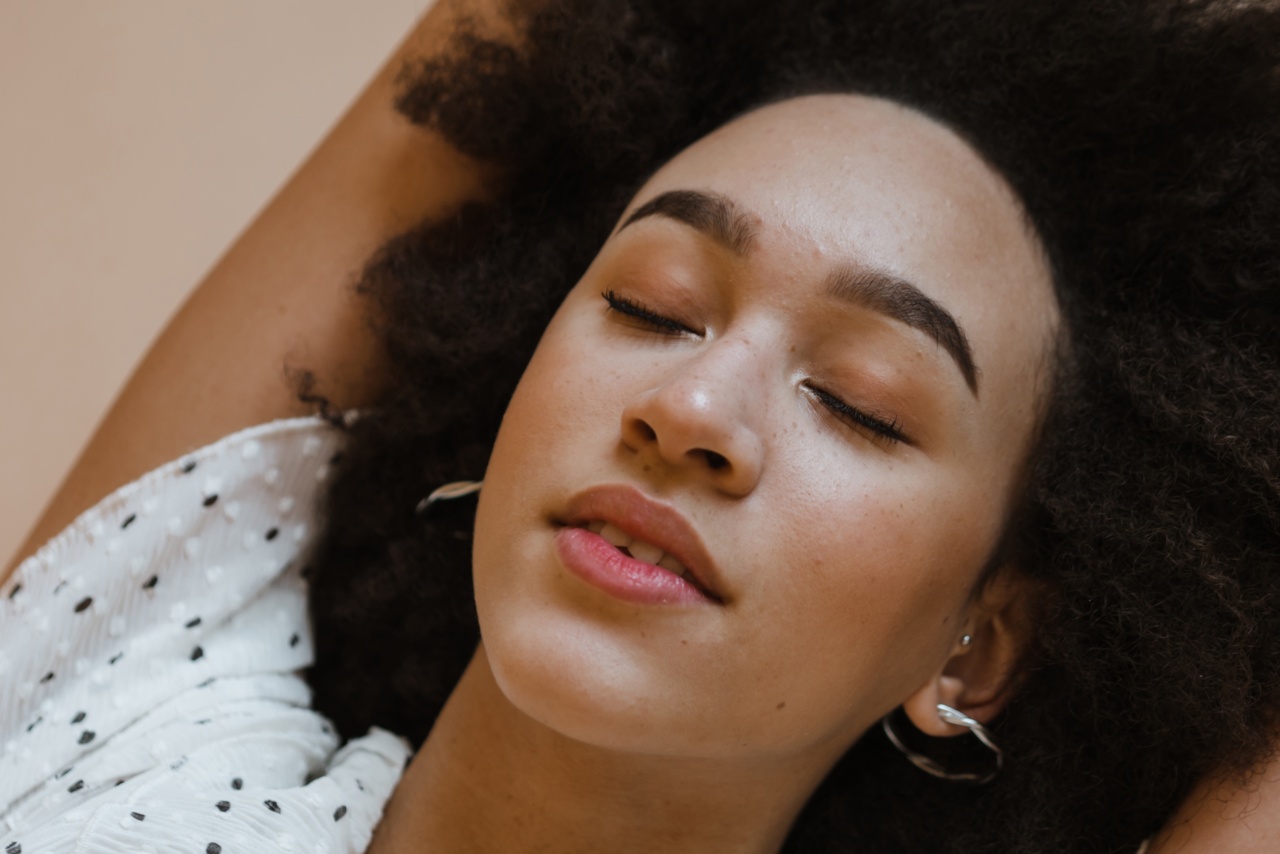Anxiety is a common condition that affects millions of people worldwide. It can make everyday tasks seem overwhelming and have a significant impact on sleep quality.
If you’re struggling with anxiety and find it difficult to get a good night’s sleep, there are natural remedies that can help alleviate your symptoms. In this article, we’ll explore some effective natural anxiety relief techniques that can promote better sleep.
1. Deep Breathing Exercises
Deep breathing exercises are a simple yet powerful technique to reduce anxiety and promote relaxation. When you’re feeling anxious, your breathing tends to become shallow and rapid.
By consciously slowing down and deepening your breath, you signal your brain to activate the relaxation response. This shifts your body from the “fight or flight” response to a more relaxed state, which can help you fall asleep more easily.
2. Meditation
Meditation is another excellent technique for managing anxiety and improving sleep quality. It involves focusing your attention and eliminating the stream of jumbled thoughts that may be crowding your mind.
Regular meditation practice can help reduce anxiety levels, enhance emotional well-being, and promote restful sleep. Consider incorporating meditation into your daily routine, especially before bedtime, to calm your mind and prepare for a good night’s sleep.
3. Exercise Regularly
Physical activity plays a vital role in reducing anxiety symptoms and promoting better sleep.
Engaging in regular exercise releases endorphins, also known as “feel-good” hormones, which can help counteract stress and improve your overall mood. Aim for at least 30 minutes of moderate aerobic exercise, such as brisk walking or cycling, most days of the week. However, try to complete your workout at least 2-3 hours before bedtime to allow your body to wind down before sleep.
4. Create a Sleep-Friendly Environment
Creating a sleep-friendly environment can significantly improve your sleep quality and reduce anxiety. Ensure that your bedroom is cool, quiet, and dark, as these conditions promote optimal sleep.
Remove any electronic devices that emit blue light, such as smartphones and laptops, from your sleep space. Consider using blackout curtains, earplugs, or white noise machines if external factors disrupt your sleep. By establishing a relaxing sleep environment, you can effectively alleviate anxiety and enhance sleep hygiene.
5. Herbal Remedies
Several herbal remedies have been found to provide natural anxiety relief and aid in achieving better sleep. These include:.
– Chamomile: Chamomile tea is a gentle sedative that can help reduce anxiety symptoms and promote relaxation.
– Valerian Root: Valerian root has been used for centuries as a natural remedy for anxiety and insomnia. It can help improve sleep quality and reduce feelings of restlessness.
– Lavender: Lavender is known for its calming properties and can promote better sleep. Consider using lavender essential oil in a diffuser or applying it to your pulse points before bedtime.
6. Limit Caffeine and Alcohol Intake
Both caffeine and alcohol can significantly impact sleep quality and exacerbate anxiety symptoms. Caffeine is a stimulant that promotes wakefulness and can disrupt your sleep if consumed too close to bedtime.
Similarly, while alcohol may initially make you feel drowsy, it can interfere with the sleep cycle, leading to fragmented and less restorative sleep. Limit your caffeine intake and avoid alcohol consumption, especially in the hours leading up to bedtime.
7. Practice Progressive Muscle Relaxation
Progressive Muscle Relaxation (PMR) is a technique that involves tensing and then relaxing specific muscle groups to induce physical relaxation. PMR can help reduce muscle tension, lower anxiety levels, and promote better sleep.
Start by tensing and then releasing the muscles in your feet and progressively work your way up through your body, gradually relaxing each muscle group. By incorporating PMR into your bedtime routine, you can relax both your body and mind, leading to deeper, more restful sleep.
8. Establish a Bedtime Routine
Establishing a regular bedtime routine can signal to your body that it’s time to wind down and prepare for sleep. Engage in relaxing activities such as reading a book, taking a warm bath, or practicing gentle stretching.
Avoid stimulating activities like using electronic devices or engaging in intense discussions before bedtime. By following a consistent routine, you can help manage anxiety levels, promote relaxation, and improve your sleep quality.
9. Cognitive Behavioral Therapy (CBT)
Cognitive Behavioral Therapy (CBT) is a form of therapy that helps individuals identify and change negative thought patterns and behaviors. It is an effective treatment for anxiety disorders and can also address sleep problems associated with anxiety.
CBT techniques can help challenge and reframe anxious thoughts, develop coping strategies, and establish healthy sleep habits. Consider seeking a qualified therapist who specializes in CBT to support you in managing your anxiety and improving your sleep.
10. Limit Screen Time Before Bed
Electronic devices emit blue light, which can suppress the production of melatonin, a hormone that regulates sleep-wake cycles. Engaging in screen time before bed can delay the onset of sleep and worsen anxiety symptoms.
Disconnect from electronic devices, including smartphones, tablets, and televisions, at least an hour before bedtime. Instead, engage in relaxing activities such as reading a book or listening to soothing music to promote calmness and prepare your mind for a restful night’s sleep.































